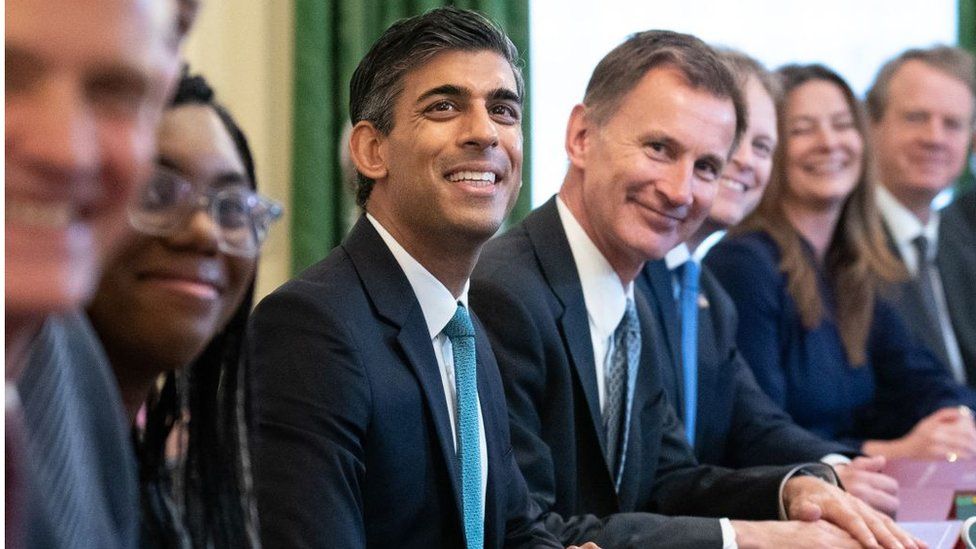ARTICLE AD BOX
 Image source, Getty Images
Image source, Getty Images
Rishi Sunak and Jeremy Hunt are to deliver a budget on 17 November
By Andy Verity
BBC economics correspondent
A group of economists has questioned UK assertions that a "black hole" in the public finances will need to be filled with austerity measures and tax rises.
The Progressive Economy Forum said the £50bn "hole" disappears entirely if the debts are calculated differently.
The government previously used a different measure of debt, and going back to using that would leave £14bn to spare, they said.
The Treasury said the public finances would be assessed independently.
Media discussion of the government's tax and spending options ahead of the Autumn Statement has been dominated by a so-called "black hole" in the public finances, put at anything from £35bn to £60bn, which, it is assumed, must urgently be "filled" with spending cuts or tax rises.
But the economists said that "fiscal hole" is merely the difference between an uncertain forecast - of how much the government will spend and borrow in future under current plans - and what it can afford to do if it is to hit an arbitrary target - that debt starts to fall as a proportion of the economy three or five years from now.
If the economy grows faster or the time frame changes, the "hole" can shrink or grow dramatically - far more than it would because of spending cuts or tax rises.
Using official forecasts from the Office for Budget Responsibility, the authors of the research, economists Jo Michell and Rob Calvert Jump, conclude that small changes in forecasts for future interest rates and growth, and what is counted as government debt, dramatically alter the size of the apparent "hole".
These changes to forecasts and accountancy rules produce far bigger effects on the £50bn "hole" than any changes in spending and taxes the government is reported to be considering for the Autumn Statement.
Reversing a decision to exclude the Bank of England's debt from the government's own debt figure, made in January 2022, "completely wipes out the projected 'fiscal hole' and, on the official forecasts, leaves the government with an additional £14bn to spend against its own debt targets by 2027", they said.
As Chancellor, Rishi Sunak previously used a different accountancy rule in 2020 and 2021 to arrive at his chosen figure for government debt.
Changing the accountancy rule used to measure the government debt back to what it was before the Autumn Statement in 2021 completely removes the "black hole", according to the economists' analysis, putting government debt back on a sustainable footing.
Conversely, the report says, a small increase in the government's forecast borrowing costs makes the "hole" much larger and the path of future debt unsustainable, rendering the fiscal target "useless".
"There is now a consensus among economists that austerity does significant damage to an economy's potential, undermining growth, as the experience of the last decade in Britain has shown us,' said Mr Calvert Jump said.
"Further austerity will do far more damage than a 'fiscal hole' that disappears with tweaks to models or accounting rules."
Dr Michell said: "These results show that the government is basing its economic policy on very shaky foundations. The case for austerity spending cuts is that the 'fiscal hole' must be closed.
"But if the 'hole' disappears with small changes in forecasts or accounting rules, it is not a reliable basis for economic policy changes, especially of the size the government is reportedly considering."
A Treasury spokesperson said that the Office for Budget Responsibility would conduct an independent assessment of the public finances.

 2 years ago
35
2 years ago
35








 English (US) ·
English (US) ·